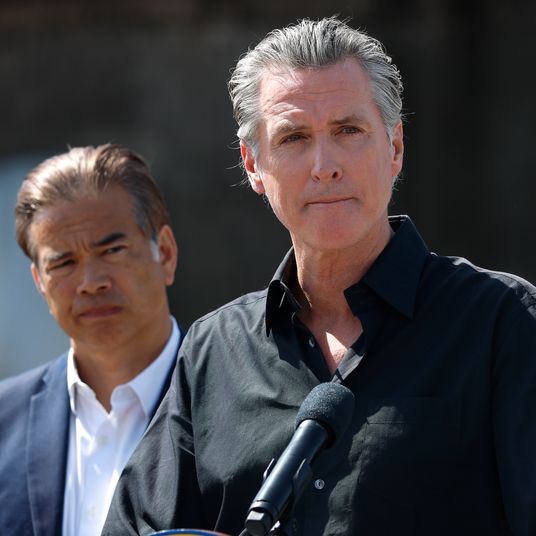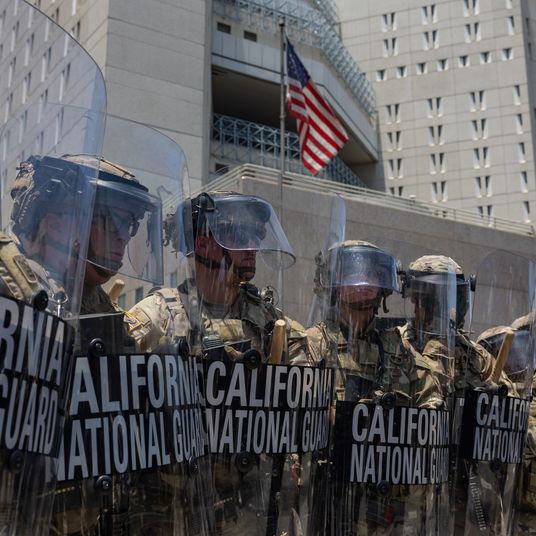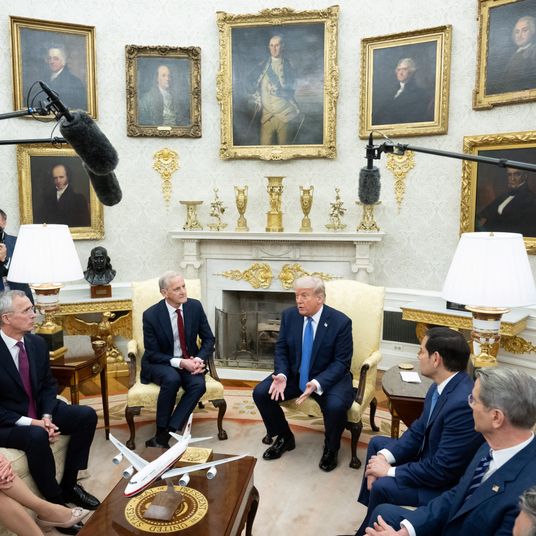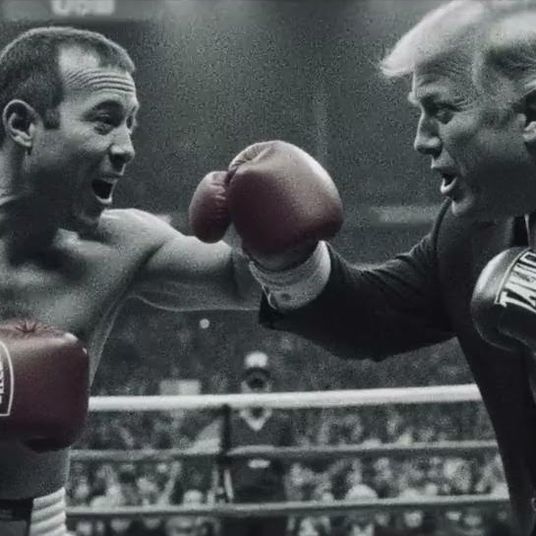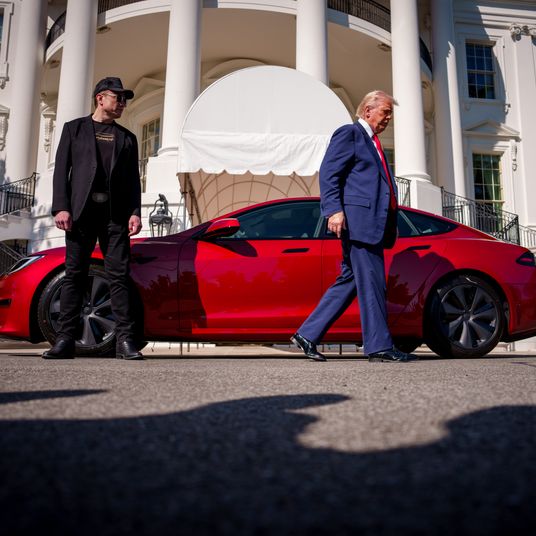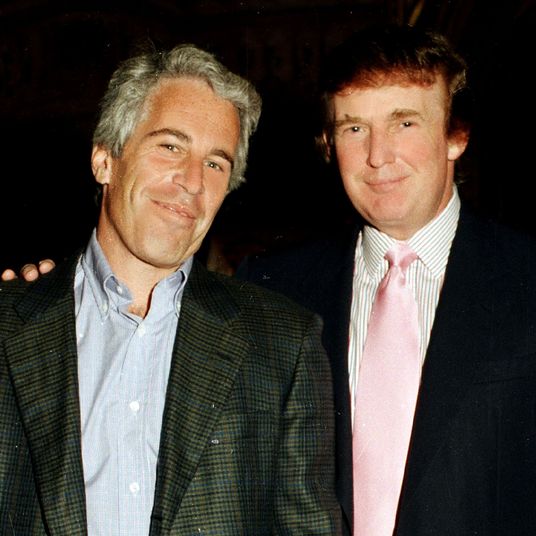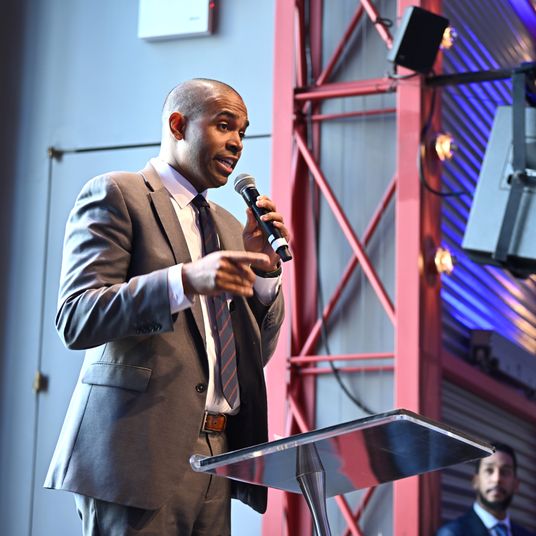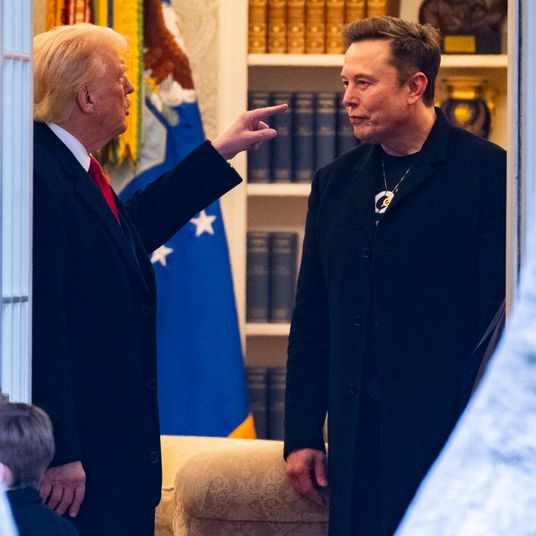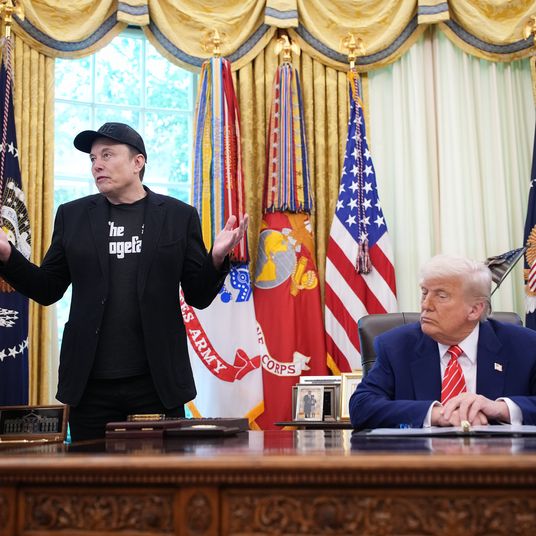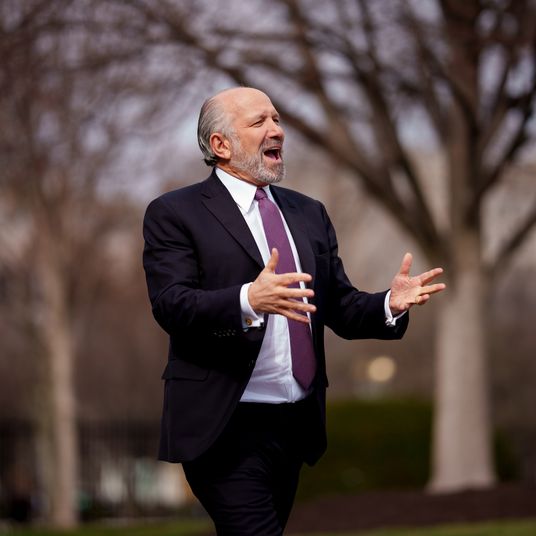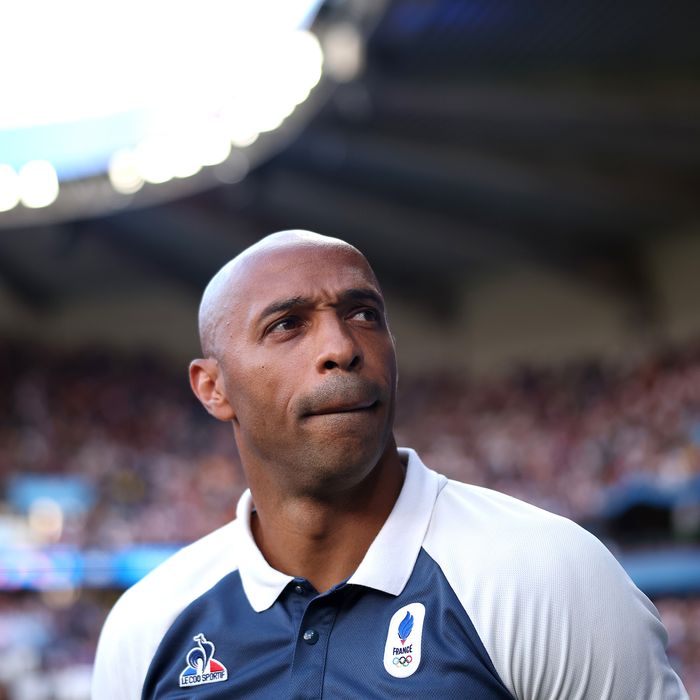
There are great goalscorers, and there are scorers of great goals. Thierry Henry was both: He obliterated scoring records with elegant artistry, and he helped redefine the center forward’s role in soccer starting around the turn of the century. Henry did it with a lethal combination of speed, creativity, and supreme confidence punctuated with uniquely French cool. He won a World Cup at age 19 in 1998, then became a global star at Arsenal and a central figure of England’s Premier League just as it was gaining a foothold in America. Later, at Barcelona, he won the Champions League alongside a young Lionel Messi, then spent five seasons with the New York Red Bulls until he retired in 2014, though he still lives in the city part time.
His longtime coach, Arsene Wenger, encapsulated Henry perfectly many years ago when he said, “Football at the highest level confronts players with an infinity of possibilities, from which they must choose one within a fraction of a second. A great player like Thierry will almost always find the only solution, which, watching from the sideline, you often didn’t know existed.”
In retirement, Henry turned to coaching and commentary. Since 2021, he has starred as a studio analyst on CBS Sports’s Champions League Today, occupying the calm center of a show known for its whirlwind mix of sports analysis, jock banter, and serious discussion — and tendency to go way off script. (He’ll be broadcasting from Munich for the Champions League final on May 31.) We caught up with him via Zoom from London, ahead of a Champions League match day, during which he was talkative, charming, and surprisingly vulnerable. As a perfectionist who sometimes had the look of a tortured artist, Henry has also confronted himself recently, which, according to him, is some of the hardest work he’s ever done.
Beat writers and former teammates have often said that no one loves soccer or understands it better than youThis is a frequent refrain in Thierry Henry: Lonely at the Top, an unauthorized 2012 biography by French soccer journalist Philippe Auclair. Henry’s homes feature multiple TV screens to watch several games at once, he can recall the scores and lineups of obscure matches, and he used to win informal soccer quizzes held among his teammates and staff. Former teammates say he had a rare talent for analyzing his own performances.
. Is it possible to put into words what you cherish so much about the game?
For me, football is a state of mind. It is a way of being. I can’t explain it; I can’t describe it. I always say to people, “You don’t think about breathing. Explain to me why you’re breathing.” They say, “Because I’d die.” Same for me: If I don’t have football in my life, I die. So I don’t say to my brain, “Think about breathing.” You do it.
I’m wondering if your interest in the game and the joy that you always got from soccer has anything to do with wanting to please your father since you were a childOne of the first things Thierry’s father, Tony, said to the newborn Thierry was that “one day, you will play for France.” Tony then spent Thierry’s entire youth and young adulthood sacrificing everything to make it so. He was an occasional thorn in the side of Thierry’s youth-team coaches, academy directors, and referees.
. You playing soccer seemed to be the key to unlocking him.
Yeah, yeah, for sure. I don’t know your upbringing, but you’re always a reflection of it regardless of what it is. There is always someone that you’re trying to please or to get approval from whatever you do in life. That’s what’s going to drive you. Or sometimes not. It’ll drive you in the right path or sometimes not in the right path.
That desire that I had to please people was always my poison, because I was never satisfied. I always felt like I didn’t satisfy people enough, or my dad enough. The hardest thing I had to do in my life was to put a smile on the face of my dad — because it was never enough. My dad was always talking about what I didn’t do, not what I’ve doneOne of the most infamous stories involving Tony took place after 15-year-old Thierry’s team won a game 6-0, with Thierry scoring all six goals. On the ride home, Tony, upset, enumerated every one of Thierry’s mistakes. When Thierry arrived at his mother’s house, devastated, she assumed his team had lost. . And so, yeah, you grow up having more love for things that you didn’t do than things that you’ve done. It’s a way to say that the fear of failure drives you to succeed, right?
Sure.
For a very long time, my happiness and my sadness were always through people. Not anymore. There was a switch from the person that I was to the person I’m trying to be. I’m understanding that you can find your own happiness. Trying to please my dad was, for a long time, my medicine. But your medicine can also be your poison. Aspirin is a good medicine. You take too many, though, and you have a problem. Finding the right balance is always difficult in whatever you do. Going back to the question you asked me: Most definitely, yeah, you obviously try to look for that approval. And it is something you cannot grab, so you always try to run for it or try to see if you can grab it, but you cannot.
What are the personal costs to a child of having a very driven parent — even one such as you, who exceeded some very high expectations? Do you recall what your state of mind was like as a child?
So, first and foremost, my parents were there. I know some friends who didn’t have parents. Once again, it was just a way of living. Now I realize all the signals of being under pressure — but under pressure, for me at that time, was normal. My dad would come to the game and wasn’t satisfied with my performance. I didn’t play well, or I didn’t play well enough. If you want to be the best, especially in football at the top level when nobody will be nice for you, that’s how you need to be.
So you embrace it, you put your cape onA bit like the concept of masking in psychology: Henry’s “cape” represents his persona and his duties as a star athlete. The cape, of course, also served to conceal all the other elements of his life, for better or worse. , you become that person and you accept that Okay, people don’t actually care about the human being, so you know what? I’m going to give them what they want to see. It’s a bit like the gladiator era in Ancient Rome. You need to entertain. People don’t want to know if you’re well mentally, or if something is wrong with you. They came, they paid, and you entertain them. For me, that’s how it was. I never stopped to look at it and say to myself, Hang on a minute. Was it right or was it wrong?
As a player, during your postgame interviews, you would shout out some of your past coaches for all their drills you did on the training ground that were the foundation of an amazing goal — those goals came from “upstream,” you’d say. You’ve also said, “Everything that looks instinctive in a player’s game has been worked on.” So if hard work is behind these moments of athletic brilliance, where does the line exist between hard work and artistry, and why do so few players truly cross that line?
Everybody has a gift. You need to find out which one is yours, and then you work hard at it. Kobe Bryant was the best example of that. I always say that repetitions create habits. The best camera you have is your brain. When you blink, you take a picture. This is why you repeat, because then it looks like it comes naturally. But I worked at it. I have a saying that’s not mine, but I like it: “An amateur calls it genius and the master calls it practice.”
Then it comes down to the brain. For me, that’s what will always separate the greats and the okay players. You need to elevate yourself to a certain level where at one point when you play, everything pauses. All the time. What do you always say in any sport about the so-called greats? They have time. But why? It’s the same ball, same human being — but they take the time to think. And not only do they take the time to think, but they see a situation before the ball arrives, not when it arrives.
And where does that ability to think several moves ahead come from?
We always say to people, “Let’s play something.” We never say, “Let’s think something.”
Can you explain?
If I said to you, “Think about a problem,” you’d think about it. If I said to you, “Let’s play,” you’d play. But if I said “Let’s think about football,” it’s a different game. Because if you think about the situation, I swear you’ll do something differently.
Friends of mine say to me they can play football. I’m like, “No, man. No disrespect to you. You cannot.” And then I say, “Okay, yes, you can play football, but you can’t think it.” Thinking something and playing something are different things. Many players make a pass without knowing why. They make a pass because you wear the same shirt, but they don’t see that there is an overloadWhen a team shifts more players to a certain area of the field. . What’s going to be the next pass? Where are you going to put the ball to this guy? What’s the situation? If you start to think about it at a young age, you start to develop playing that way. That’s how all Spanish players play. They think about space, they think about position, they look, they scan the field way more than any other player or any other players. Do you have kids?
Yes.
When he’s about to do something, what’s the first thing you say to him? “Wait, think about it first.” Think. Don’t you say that?
Yeah, probably thousands of times.
“Think, please. Think.”
For a generation of soccer fans in America, and probably in England and elsewhere, you came to epitomize an outsider’s notion of French cool and nonchalance. Compared to most goalscorers who’d maybe jump and pump their fist in the air, you were like the action hero who coldly walks away from an explosion. I bring this up because I think in hindsight it especially stands out: Nowadays everything feels self-aware, and every action seems to be done with engagement in mind. I’m curious what was behind that.
That was just me. But I’m going to have to mention some people here. First of all, my dad, as you can imagine, gave me that grit. Sometimes when I used to score a goal, I would be in a rage. Why? You wouldn’t know it, but it’s because I was still upset about missing a pass just before that could have been a goal. So I would be like, I’m scoring this, which was way more difficult than what I had before. But I was still arguing with myself while I’m scoring, because I was wired like that.
Also, stars that I admired growing up never smiled. I grew up watching Michael Jordan. When have you seen Michael Jordan scoring a basket smiling? Allen Iverson — same. The guy would’ve died on the court, and he was getting up all the time, going back in the paint. I didn’t copy them, but I was like, Oh, okay. They know. Yes. That is my way.
It’s so funny that you’re saying that, Adam, because I remember at the time, people were telling me, “Thierry, smile a bit more. Why are you always like this when you play? You look moody.” And now people actually say to me, “We miss that.”
It’s amazing how much reach Champions League Today has around the world, especially for a soccer show from America. In the past, you attributed its success to authenticity between you and co-hosts Kate Scott, Jamie Carragher, and Micah Richards and a lack of bullshit. To my eyes, a lot of the appeal is the unpredictability. There’s a tension that the show can go off-script in some unforeseen direction, almost a constant threat level of chaos or danger. Is it nerve-racking to constantly walk that tightrope?
No. You know what? It’s like if I said to you, in your line of work, “You can be yourself and do whatever you want to do within parameters.” Come on. Wouldn’t you be happy that your boss allows you to do you?
It’s all anyone wants.
You have to give a lot of credit to everybody above us at CBS, because they allow us to be us. For me, I’ve learned how to relax. I’m a pretty intense guy. “Don’t joke about football. We’re talking about football. Can we be serious now?” A bit like when I was on the field. But I learned how to understand that cracking jokes sometimes during the show or during a game works. I’m seeing it differently. I laugh a bit more about it. I’m just more relaxed — that would be the word.
But you mentioned the success. Before, when I was recognized in public, people wanted to talk about what I did or didn’t do in my career. The other day I was in Abu Dhabi and people were like, “Where’s Jamie? Did you come with Kate? Did you come with Micah?” Nobody asks me about Arsenal, Barcelona, the French team. When I was in South Korea walking down the street: “CBS!” When I’m in the Hamptons on holiday: “We love the show, man!” I came in as an analyst or whatever, but now I’m in a family, with friends. I think it shows when we are there. People always say the show is funny. Yes, but we do also go into some deep analysis of the game. And we have addressed a lot of situations on that show that are important in this world.
You were out front in combating racism in soccerIn 2004, Henry persuaded Nike to launch a high-profile campaign called “Stand Up, Speak Up” after experiencing racist abuse from soccer crowds in Europe.
and have said before that soccer is a product of society. There are a lot of negative ways the game reflects society nowadays: cheating, homophobia, obscene amounts of money, shady owners and investors … I could go on. But what are some positive ways that soccer is a product of society?
Well, togetherness, a sense of unity. You have no borders on the field. Everyone is accepted for a football game. I’m talking in general, obviously. You bring a ball, everyone plays. They don’t think at that moment where you’re from or what your religion is.
But the open mind that people can have in the stands, those people will not dare to sing or say those things in the streets. They will be arrested if they do. But in the stadium, it’s allowed just because it’s loud. Do I want you to talk about my wife or something about my kids that came out in the tabloids? And then if you ever lose your temper, people will say, “He should know better.”
It’s not easy. And so it teaches a lot. There are a lot of values in the game, being on the team, understanding the team, respect, values, work ethic. Like I said to you, that sense of unity. Sport also brings a certain happiness where people forget about the struggle sometimes during the week and what they go through.
When Champions League Today was in Miami, I encountered a police officer. He says, “Can I speak to you, Mr. Henry? I just wanted to tell you that you saved my life. Your interviews, the way you speak, the way you go about stuff when you struggle took me out of my misery.” As a player, I had tunnel vision. I played, we won, that’s what people wanted to see, then I went home. I wasn’t thinking about what impact I had on someone. I was just wired like this. And when he told me that, I didn’t know what to say. What do you say to that? Sports sometimes will bring you to stuff that you couldn’t even imagine.
One of the things that makes soccer so intriguing is that it’s both simple yet endlessly complex and inscrutable. What do most people fundamentally misunderstand about the game?
All the things people take for granted. The passing and the physicality of the players that you see is not what you’re used to. A pass of a professional football player is not the pass of your friend that you play with when you’re in the park. A cross in a game looks like the cross that you finished; it’s not. Pinging a diagonal ball 70 yards straight away to your winger while under pressure, dropping it just on the other side of the opponent’s right back, for your winger to control under pressure — you’re not in a pocket like a quarterback, able to see the field.
And if I go deep into other stuff — dribbling at full speed, you are always on one leg. You have to keep control of the ball while you’re under pressure, and you need to shift the ball to a different side because a defender is coming and then protect the ball, still able to see the game. People say, “Oh, come on, I would’ve scored that goal. Oh, come on, I would’ve made that pass. Oh, come on. I would’ve stopped him.” No, you wouldn’t.
Talking earlier about how soccer is a mirror of society, in many ways it appears the game has been optimized and is more about systems now. It lacks the individual flair from your day. Are these skills disappearing in players, or are they just getting coached out of them?
I don’t know if you can say they’re being coached out of them. Nowadays you need to have a structure, because if not, it’s very difficult. In between the boxesMeaning the vast middle of the field between each 18-yard box in front of the goals: Systems are all but mandatory in the modern game to advance the ball upfield (or win it back).
, you’re going to have to set up something. But other than that, you have to dribble, invent. You cannot coach your way into a goal.
Going back many years, you’ve always had an affection for New York City. You finished your career here and have lived here for years. You have tattoos on your arms of the city. Do you still love it?
We all know that since COVID, New York City has changed. Maybe not for the best; you can see that things are not like they used to be. And a lot of people are struggling. But for me, New York is New York. My son was born there. I always wanted to live there. I like the directness of people in New York. They’ll let you know — I’m like that. I like the energy in the city. And when you look at the city and how it is, normally you shouldn’t like it. I’m not saying that in a bad way, but it smells; you look at buildings, the curves are uneven; the street falls everywhere. But I love it.
When people say to me, “I don’t like New York,” I’m like, “Are you okay?” I just don’t comprehend that. The passion of the people, how hectic it can be, how crazy it can be, the food — there’s always something happening, underground stuff. Anything you want. Trouble. Obviously we don’t want that part, but you can find anything. I just love New York.
What do Europeans understand about soccer or feel about it that Americans don’t? In other words, what is missing in soccer and soccer culture in America?
Just the will of wanting to take it seriously. That’s it. It’s going to be very difficult to beat the NBA, MLB, NFL, and college football, as you know. But the U.S. was one of the first countries to get to the semifinal of the World CupHenry indeed knows his soccer history. He’s referring to the inaugural World Cup, held in 1930 in Uruguay. The U.S. reached the semifinals but lost a violent semifinal to Argentina, 6-1.
. I don’t know what happened from then to now, but the population is there. The mix is there. The facilities are there. The money is also there.
Now, the advantage that we have in Europe is that, when I arrived in MLS, the American players were telling me that as kids, they had to pay for their equipment, they had to pay the coach. In France you go to the local team; you don’t pay for anything. So you lose your players from the hood because they don’t have gas money, they pay for the equipment and the coach. Let’s say you have three kids — what do you do? It’s different.
But the day the U.S. really decides that they want to dominate, they will dominate.
This interview has been edited for length and clarity.


